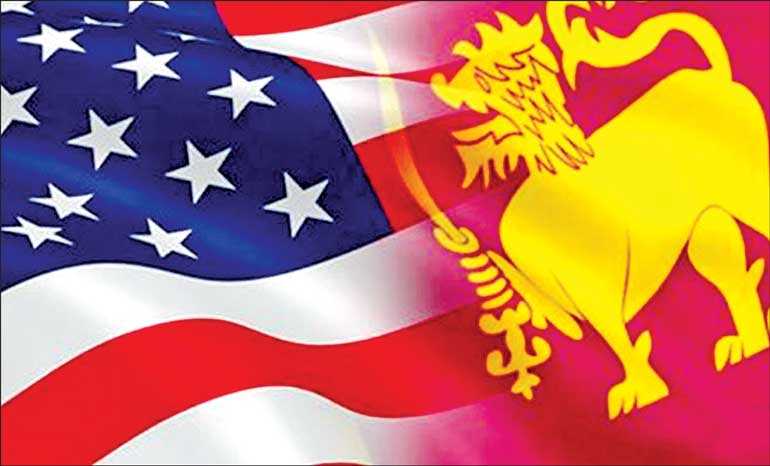Friday Feb 20, 2026
Friday Feb 20, 2026
Friday, 25 September 2020 00:30 - - {{hitsCtrl.values.hits}}

By C.K. Liyanagama
A sensible person judges pros and cons of any controversial issue after carefully careful study of all available facts and other relevant information. But some of our politicos and so-called learned individuals are in the habit of jumping into conclusions without proper evaluation of the crux of the matter. The debate over the Millennium Challenge Corporation (MCC) Compact Grant is a clear testimony for such behaviour.
I wish to elaborate where the critics have gone terribly wrong on this issue, since I consider it as my civic duty to enlighten our readers on a matter which is detrimental to the development and prosperity of our country.
Apparently the MCC has strictly adhered to their laid-down objectives, since its inception. As per their objectives, MCC is an innovative and independent US foreign assistance agency that is helping lead the fight against global poverty. Created by the US Congress in January 2004 with strong bipartisan support, MCC has changed the conversation on how best to deliver smart US foreign assistance by focusing on good policies, country ownership, and results.
MCC provides time-limited grants promoting economic growth, reducing poverty, and strengthening institutions to developing countries who are committed to good governance, economic freedom and investing in their citizens. At no stage has the MCC deviated from the said objectives and/or engaged in any military related operations.
The MCC Board of Directors comprises Secretary of State, the Secretary of the Treasury, the US Trade Representative, the Administrator of USAID, the CEO of MCC and four private sector members appointed by the President of the United States with the advice and consent of the US Senate.
The $ 480 million fund earmarked for Sri Lanka is the largest-ever grant the country has received up to now and the utilisation of this mammoth fund will be handled by a team comprised entirely of Sri Lankans. Other Asian countries that have received grants similar or higher value are Indonesia ($ 600 m in 2011), Philippines ($ 433 m in 2010) and Nepal ($ 500 m in 2017) for various development projects.
According to knowledgeable sources a considerable amount of preliminary work has been conducted by a compact development team appointed by the then government and they have made comprehensive plans and road maps for the implementation of projects to be undertaken under the MCC project specifically for the development of transportation and land sectors.
As per the agreement, the Government also utilised several formal and informal mechanisms to solicit direct input from relevant stakeholders to inform project selection and design. These mechanisms included stakeholder workshops, outreach sessions targeted to specific interest groups such as private sector entities, and formal presentations to minister and secretary-level Government representatives.
More specifically, in 2017, the Government organised a series of workshops with different Government ministries and agencies working on transport and land, representatives of the chambers of commerce, various think tanks, and civil society to discuss the root causes of the binding constraints. While finalising the program in May 2018, the Government further engaged in extensive consultations and organised workshops and focus groups with stakeholders in the transport and land sectors.
Furthermore, the agreement states that the Board of Directors shall have ultimate responsibility for the oversight, direction, and decisions of MCA-Sri Lanka, as well as the overall implementation of the program. The Board of Directors shall comprise 11 voting members and two non-voting observers.
As of the date of preparation of the agreement, the voting members of the Board of Directors shall include representatives from the following: Representative from the President’s Office, Representative from the Prime Minister’s Office, Secretary to the Ministry of Finance, Secretary to the Ministry of Transport and Civil Aviation, Secretary to the Ministry of Lands and Parliamentary Reforms, Secretary to the Ministry of Megapolis and Western Development, Secretary to the Ministry of Highways and Road Development and Petroleum Resources Development, Secretary to the Ministry of Women and Children Affairs and Development of Dry Zone, one private sector representative and two civil society representatives. Therefore, are these so-called patriotic alliances still claiming that the above high-powered individuals are working against the interests of their motherland and support US to setup the imaginary military bases and corridors?
Also, have any of the political big mouths who wag eloquently against receiving such a massive grant for development purposes mobilised a single dollar for a similar effort? Some people think $ 480 million is peanuts. However, they forget the fact that many professionals and powerful politicians have tirelessly worked towards securing this grant, knowing its value and importance. Also it’s sad that a very few politicians are playing politics at the expense of Sri Lanka’s development and also obliterating the President’s vision for prosperity as stipulated in the ‘Vistas of Prosperity and Splendour’.
Time is precious. Had we made use of this magnanimous offer swiftly, by now the envisaged projects would have reached fruition and the country would have been in a much better shape. If someone thinks that MCC will keep it forever for us to take whenever we feel like having it, they are sadly mistaken. The deadline is fast approaching and should we cry over spilt milk?
(The writer is a retired senior manager of a State bank who has been instrumental in transforming the bank operations to suit challenges encountered by the bank due to changes in the economy in the 1980s.)